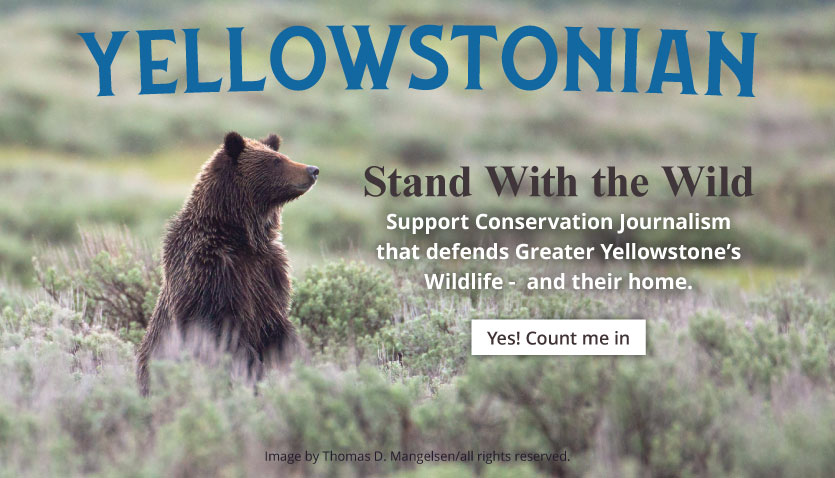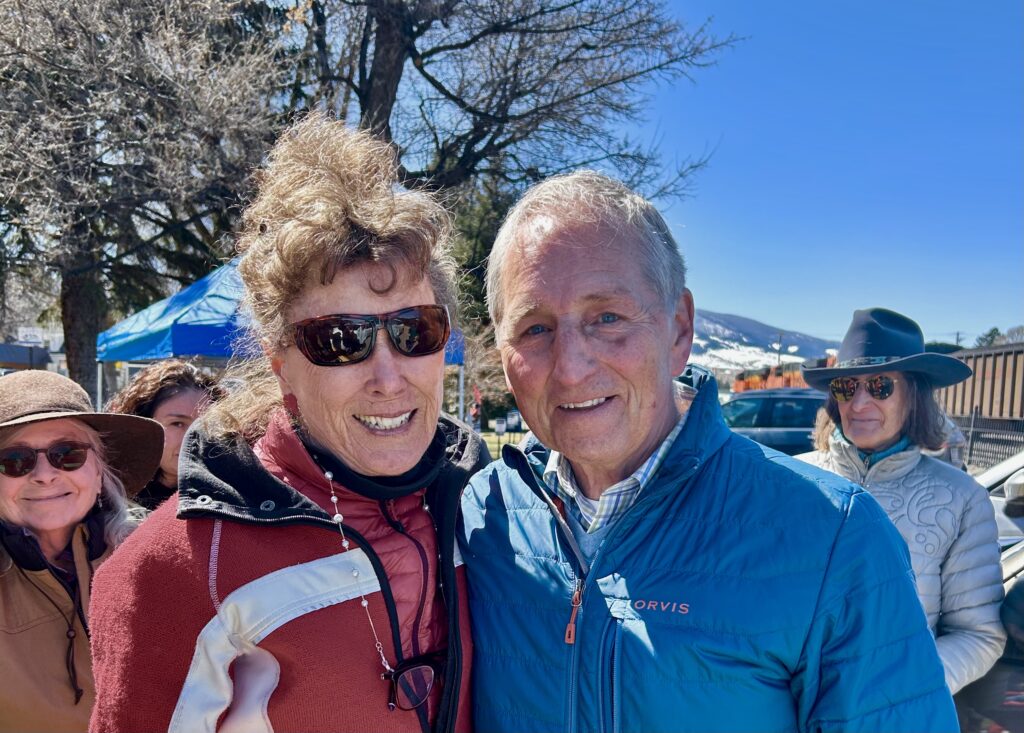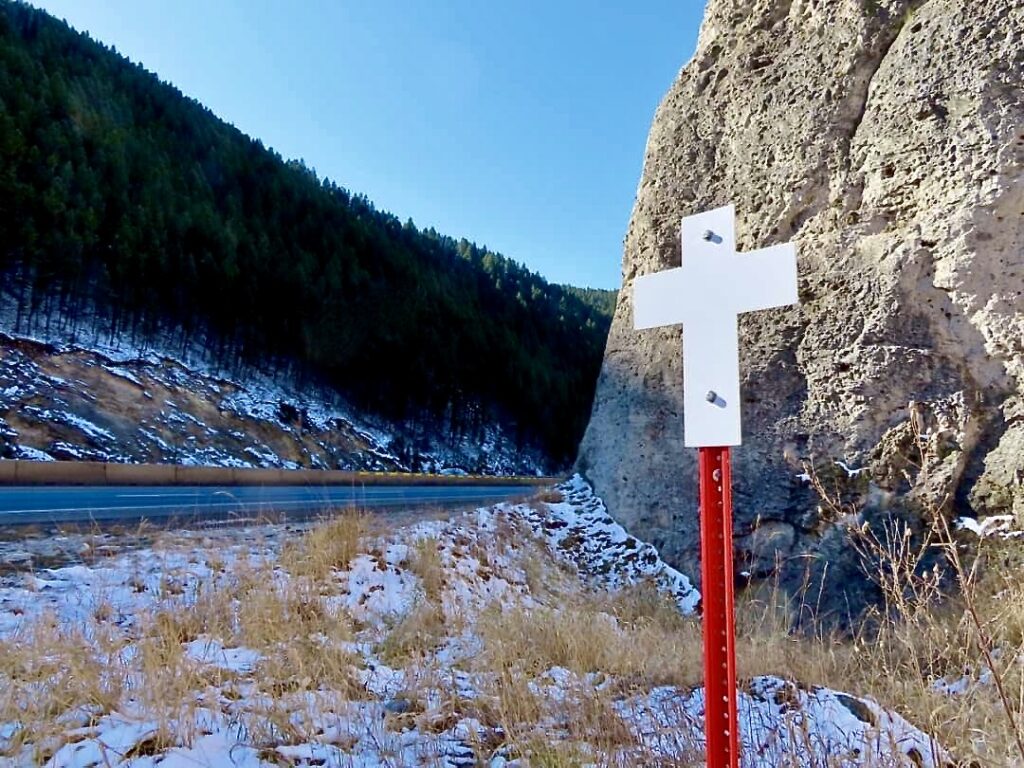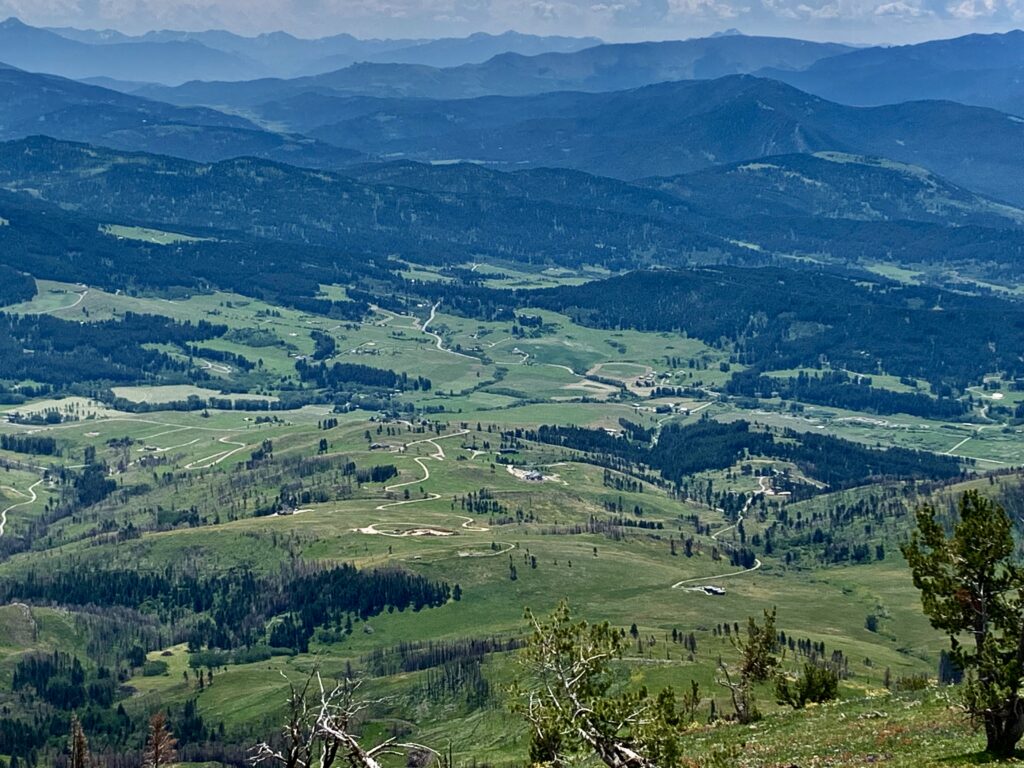We welcome your thoughts, readers. Please keep your comments as brief as possible, stay on point, be civil and respectful, don’t engage in personal attacks and share a phone number in your note so we can follow up and make sure you’re the author. Send your comments to this email address: info@yellowstonian.com
Are We Still Cavemen?
RE: Yellowstonian story, April 15, 2024: Yes, It’s Legal To Run Down Wolves and Coyotes With Snowmobiles In Wyoming
The running down and torture of a wolf by Wyoming resident Cody Roberts has caused widespread, even global outrage. Wyoming slapped Roberts on the wrist with a $250 fine after he was dumb enough to boast about his cruelty and post photos on social media. While Wyoming is taking the heat for this crime, it could easily happen in Montana.
In Montana it is not illegal to run over coyotes with a snowmobile. You are not supposed to run over wolves but who is checking? It may not be legal to transport them alive or torture wolves, but there are plenty of ways to legally inflict pain and suffering on Montana wildlife. Wolves can be trapped and left for hours. Same with coyotes, bobcats, martens, fisher, otters, bears, foxes, etc. It is also legal to snare (strangle) wild animals like wolves, as well as bait them and shoot them at night while they are blinded by bright lights. It is also allowed to chase black bears with dogs in spring when they have tiny cubs.
Don’t forget that Montana Governor Gianforte illegally shot a collared wolf that had been trapped and held for him to kill.
It’s truly appalling to see what horrors humans are willing to inflict, in the name of “sport,” on animals that experience pain, fear, affection, social bonding, and many other emotions just like we do.
Are we cavemen still? Can we rise above our apparent need to abuse and kill other species? It’s time to reexamine what practices our state fish and game agencies allow, and what our state legislatures sanction, in regard to wild animals. We can start with outlawing the intentional running down of wildlife with motor vehicles. Maybe we can actually start to evolve as a species.
Phil Knight
Conservationist, writer, wanderer, wildlife-watching guide in Yellowstone National Park
Bozeman, Montana
Species Shouldn’t Have Categorical Exclusion From Cruelty and Torture Laws
Such an extreme case should lead us all to consider more deeply what responsibilities we have to protect animals, and how such protections can be encoded through our legal system and applied. I have never seen a case that so clearly exposes the disconnect between animal cruelty laws and their application. Since the advent of animal protection, our cruelty laws have too often excluded certain species and entire areas of animal exploitation—from trophy hunting to industrial animal agriculture—from basic consideration.
Usually, the discussion of cruelty within the wildlife context centers on what constitutes responsible hunting practices, which includes the concept of “fair chase,” meaning an animal being hunted has a reasonable chance to escape. But in this case, the wolf’s suffering was directly related to the nearly unlimited freedom people have to kill animals in this part of the state. This mind-boggling 85% of Wyoming is designated as the “predator zone,” where wolves, coyotes and other species, including even domestic cats defined by the state as “stray,” can be killed by any means at any time. This case involved a moral perversion that was chilling in its heartlessness, and that simply is animal cruelty.
The failure of Wyoming’s policies to prevent this act of cruelty must be viewed against the backdrop of the escalating war on wolves in the Northern Rockies states, underscoring the urgent need for the reinstatement of federal protections for wolves under the Endangered Species Act. Earlier this month, we sued the federal government for denying these protections, and we are hopeful that the court will force a reconsideration of the issue. In the meantime, there is much to be done at the state level to better protect wolves from incidents like this.
Kitty Block
President and CEO of the Humane Society of the United States
Washington, DC
You can read more of her thoughts in her new blog she penned about the incident. Note: Ms. Block was present at The White House when then-President Trump signed the Protection Against Cruelty and Torture Act in 2019.
Don’t Confuse What Happened In Daniel, Wyoming With Hunting
Like others, the Boone & Crockett Club is saddened and dismayed by recent alleged events of the inhumane handling of a live wolf in Daniel, WY, as well as by the minimal legal ramifications of these actions.
The alleged events cannot and should not be considered hunting or wildlife management. Respect for wildlife is at the heart of what we do as hunters and conservationists and it’s clear that respect was absent from this situation. The Club has long supported professional wildlife management by state fish and wildlife agencies—including the ethical, regulated hunting of game species—as the most effective way to ensure sustainable populations of wildlife. When we have these laws and regulations in place, it builds value for wildlife and those who violate the laws can be held accountable for their actions. Until wolves are managed within this system throughout their range, we will continue to have conflicts and loss of ethical behavior.
Tony Schoonen
CEO of the Boone & Crockett Club
Missoula, Montana
Mr. Schoonen invites readers to check out Boone & Crockett’s “Position Statement On Animal Welfare and Conservation of Living Things.” Read also the Yellowstonian story: A Death of Ethics: Is “Hunting” Destroying Itself? and this statement released by presidents of The Wildlife Society, including Robert Lanka, who retired in 2018 after serving as the statewide wildlife and habitat management supervisor for the Wyoming Game and Fish Department.
Note from Yellowstonian: Click on this link to see the results of a recent statewide opinion poll gauging sentiments of Wyomingites about the Roberts incident. The survey was carried out by Remington Research on behalf of the Humane Society of the US. If you are from Wyoming, do you agree with the results?
Subscribe
Never miss a story, subscribe to our newsletter!






